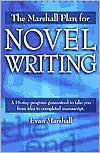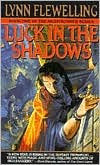Tuesday, September 25, 2007
The Dart Board Method for Plotting: Read It & Weep
For years I had hot flashes -- moments of sudden inspiration -- ideas, images, entire scenes with near-perfect dialogue. I wanted so badly to use these ideas in my fiction. Some of them made such an impression I couldn't help but remember them, and they made it onto the page when I was writing. Sadly, most of the ideas just vanished into thin air, never to be thought of or heard from again. Then I tried capturing them in note form as they occurred to me, for use later. That helped, but I still could not write down every idea, especially when urinating, no matter how many beers I had drunk, and again most of them were lost.
Then I realized it was like throwing darts at a dart board, something I'm terrible at. Sometimes the darts will hit the board, but as often as not they'll hit the wall, the floor, or someone standing a little too close to the action.
For illustrative purposes, the dart board was a story. The darts were the flashes of ideas I would have for the story. I'd get the flashes at any time, any place, whether convenient or not. I couldn't always interrupt other things to stop and write them down, the way it's not always possible to write somebody's phone number on your hand in a drunken stupor no matter how many times he gives it to you. Likewise, when I tried to hold onto the darts, they protested, telling me if you love something, let it go. When I did, they would fly off in some unknown direction, never to be heard from again. Many of them were really good. Some of them were breathtakingly beautiful, stirring me deeply in a truly profound sort of way.
I tried contacting the Dart Makers' Association for help. They told me there was nothing they could do. All around the world, millions upon millions of darts went missing every year, darts nobody ever heard from again. When the DMA stopped returning my calls, I knew I would have to solve this problem on my own.
Then I realized something wonderful, something that had the power to change things forever. No longer would I lose so many darts. I had found a way to get them safely to the dart board, where they would stick and become the stuff legends are made of (and dramas, satires, colorful dialogue, etc.).
Have you ever noticed that dart boards are not just plain, round boards, but they have designs on them? Little lines that radiate outward from the center, concentric circles, panels with different colors. Some boards even have writing on them. You can use these various markings to tell where a dart has struck, to rate it, classify it, assign it points, something I hadn't noticed before since no one ever bothers to keep score when I'm playing -- fractions are usually too small to be considered significant in competition.
I realized that plot ideas are best retained when you have something to attach them to. Not a large, blank, nebulous, ill-defined and poorly-conceived mass of generic story matter, but a story that can be pinned down, draped over a framework, a pattern. I needed a a generic navigation system that could help me determine in which direction a dart, or story idea, went flying.
Once I began to apply the three-act structure to my planning, broken down into twelve steps, things changed dramatically. I conditioned myself for story-telling purposes to conceive of stories and then think of them spatially, temporally, in a pattern that is generic and very much the same for all stories. While the story particulars might vary considerably, the basic sense of a beginning, a middle, and an ending, remained constant. I could pick up a dart and tell at once which part of the story it was destined for. I even learned to discern different kinds of darts! There are darts that incite other darts to fly, darts which fly fast and hard, darts which float along then sneak up on you with a sudden rush (as those standing by the dart board have confided in me). There are even those darts which strike clean through to the very heart (thankfully, with modern medicine, this is not as terrible as it might sound). In short, I learned to tell what sort of dart I was throwing, and where it was supposed to land. Knowing this meant I was now throwing Smart Darts (tm), the kind that always find their targets because, frankly, there's nowhere else for them to go.
What this means for those long drives in cars with songs, and those long showers under refreshing streams of water, is that I can now remember my ideas much more better, and I can recall them later as well. I don't lose nearly as many of them as I used to, and any of True Value (tm) or significance will almost certainly manage to show up eventually precisely where they were supposed to ... not on the dart board, but on the printed page, where they can reside happily forever alongside other darts in a mosaic pattern that, well, it just sort of makes you weep to see it.
My new motto: "A Place For Everything, And Everything In Its Place."
Adrian
Subscribe to:
Post Comments (Atom)








1 comment:
Clever post. And some good ideas. My first classes (novel and prompting the muse) always start with plotting exercises and the assignment is to plot the story. You'd be surprised how many people come into the novel writing class and haven't got a clue how to begin...or where they want to go even! They need your dart-board method!
Post a Comment